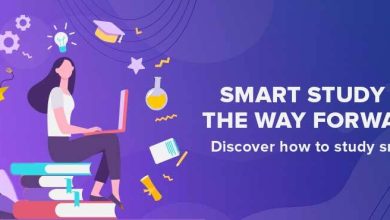Pursuing a Master’s in Education opens doors to leadership roles and higher pay in the education sector. Educators can develop expertise in areas such as curriculum development, instructional design, and educational leadership. By completing this program, professionals can stay competitive and make a positive impact on student learning outcomes.
The Education Masters degree is designed to empower teachers to excel in their careers and contribute to the improvement of education systems worldwide. With a focus on practical skills and theoretical knowledge, graduates are well-prepared to handle the challenges in the dynamic field of education.
The Importance Of Education
Education Masters play a crucial role in empowering individuals and driving societal progress. Education equips individuals with essential knowledge and skills needed to succeed in various aspects of life. It promotes critical thinking, problem-solving abilities, and effective communication. By promoting education, societies can witness positive changes in healthcare, economy, and overall well-being. Quality education prepares individuals to contribute to economic development, thereby creating a positive impact on societal growth. Additionally, access to education empowers individuals to make informed decisions, enhances their personal development, and promotes social harmony. In conclusion, education remains the cornerstone for continued progress and prosperity at individual and societal levels.
Challenges In The Education System
Within the Education system, achieving a Masters poses distinct challenges. From rigorous coursework to demanding research projects, students encounter obstacles that foster growth and development in their academic journey. Navigating these challenges ultimately equips individuals with valuable skills and knowledge essential for future success.
| Access and Inequality |
Quality of Education |
| Limited resources hinder students’ access |
Disparities in educational opportunities |
| Students in rural areas face obstacles in getting education |
Varied standards of teaching impact learning |
| Economic challenges lead to fewer opportunities |
Lack of proper infrastructure affects learning outcomes |
The Evolution Of Education
Traditional learning methods have been the cornerstone of education for centuries. Students sitting in classrooms, listening to lectures, and participating in discussions have been the norm. However, the advent of technology has revolutionized the way we learn.
Technology has significantly influenced education by providing access to a vast amount of information and resources. With a few clicks, students can find answers to their questions, explore different perspectives, and engage with interactive learning materials. The Internet has become a global classroom, connecting students and educators from all over the world.
Moreover, the integration of technology has enabled personalized learning experiences. Adaptive learning platforms can tailor educational content to individual students, addressing their specific needs and learning styles. This enables students to learn at their own pace, fostering a more inclusive and engaging educational environment.
Additionally, technology has transformed the way teachers deliver instruction. Multimedia presentations, online discussions, and virtual reality simulations bring subjects to life, making learning more immersive and engaging. Technology has also allowed for remote learning, enabling students to access education from anywhere.
The Role Of Educators
The role of educators in the field of education is crucial in shaping the minds of young learners. One key aspect of their role is mentorship and guidance which plays a vital role in the development and growth of students. Educators serve as mentors and provide guidance to students, helping them navigate through challenges, discover their interests, and develop their potential.
Mentorship allows educators to establish a trusting and supportive relationship with their students. Through this relationship, educators can act as role models, helping students to develop critical thinking skills. The encouragement of critical thinking is essential in fostering curiosity, creativity, and problem-solving abilities, enabling students to become independent learners.
By fostering critical thinking, educators empower students to question, analyze, and evaluate information, preparing them for the ever-changing world. They encourage students to think critically about the subjects they learn, unravel complex concepts, and form their own opinions. This process helps students develop a deeper understanding of the subject matter and enhances their ability to apply knowledge in real-life situations.
In summary, educators play a pivotal role in education by providing mentorship and guidance, cultivating critical thinking skills, and empowering students to become lifelong learners.
Education And Economic Development
Education plays a crucial role in the economic development of a country. It directly impacts job opportunities and drives innovation and entrepreneurship. A well-educated workforce is essential for the growth of industries and contributes to the overall development of the economy.
A strong emphasis on education leads to the development of a skilled workforce, which in turn attracts investment and creates job opportunities. Individuals with higher levels of education are more likely to have access to well-paying jobs and have a lower unemployment rate.
Moreover, education fosters innovation and entrepreneurship as it equips individuals with the knowledge and skills to think critically, solve problems, and adapt to changing circumstances. It encourages an entrepreneurial mindset, enabling individuals to identify opportunities and take risks.
In conclusion, education plays a vital role in economic development, impacting job opportunities and driving innovation and entrepreneurship. It provides individuals with the necessary skills and knowledge to contribute effectively to the workforce, fostering economic growth and prosperity.
Education And Global Citizenship
Education plays a crucial role in shaping global citizens by promoting cultural understanding and fostering peace and sustainability. By providing students with opportunities to learn about diverse cultures, educational institutions can nurture empathy and tolerance. This, in turn, creates a more harmonious global community. Education also equips individuals with the knowledge and skills to address global challenges, contributing to the promotion of peace and sustainability. Emphasizing the importance of global citizenship in educational curricula can empower students to become active contributors to a more peaceful and sustainable world.
The Future Of Education
Personalized Learning: One of the key advancements in education is the shift towards personalized learning. This approach tailors education to individual student needs and abilities, allowing them to progress at their own pace.
Adapting to Changing Needs: Another crucial aspect is the adaptation to changing needs in the educational landscape. Educational institutions and educators are constantly evolving to meet the demands of the modern world, incorporating technology and innovative teaching methodologies.
The Power Of Lifelong Learning
The key to success lies in continuous personal growth. Embracing lifelong learning is essential. By adapting to a dynamic world, you stay relevant and agile.
Frequently Asked Questions
Is An Education Master’s Worth It?
Yes, a Master’s in education can lead to higher pay and job opportunities. It provides specialized knowledge and skills for educational leadership and can lead to career advancement.
Which Master’s Degree Is Most Valuable In Education?
A Master’s in Education Leadership or Curriculum Development is valuable for education careers. These degrees can lead to administrative roles or curriculum design. Special education or ESL degrees are also in demand. Consider your career goals when choosing a program.
What Is The Best Master’s Degree For A Teacher?
The best Master’s degree for a teacher is a Master of Education (M. Ed. ) In their subject area.
How Long Is Masters Degree In Education?
The master’s degree in education typically takes about 1-2 years to complete. It focuses on advanced coursework and research in educational practices and theories. The duration may vary depending on the program and whether it is pursued on a full-time or part-time basis.
Conclusion
Pursuing a master’s degree in education can open doors to new opportunities. By enhancing skills and knowledge, you can make a positive impact on students’ lives. Stay committed to continued learning and growth in the field of education. Your dedication will drive success.





